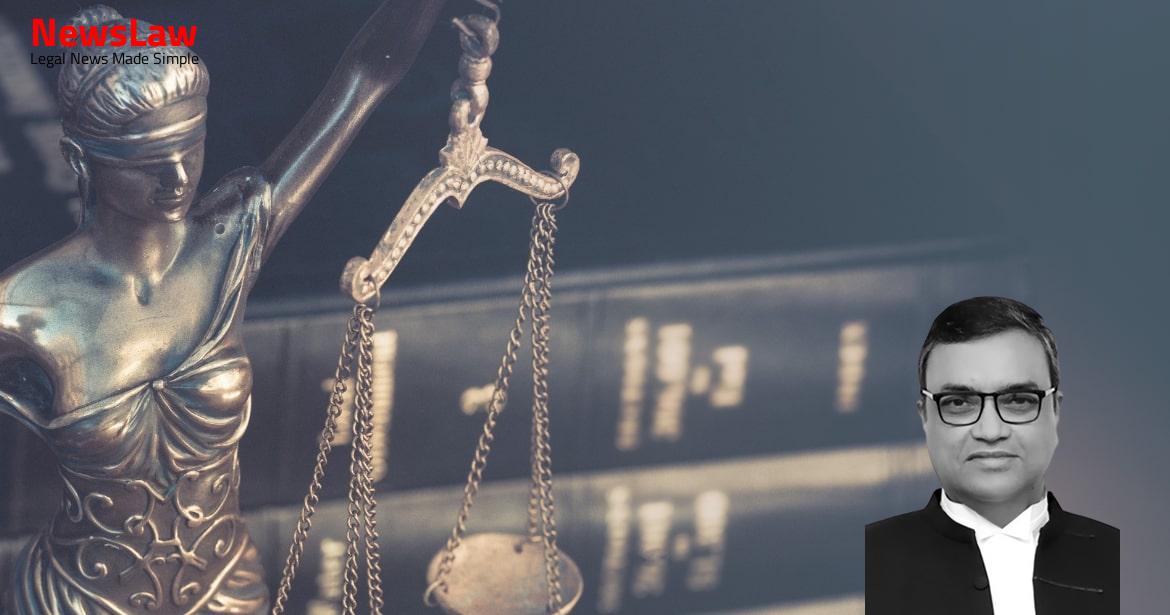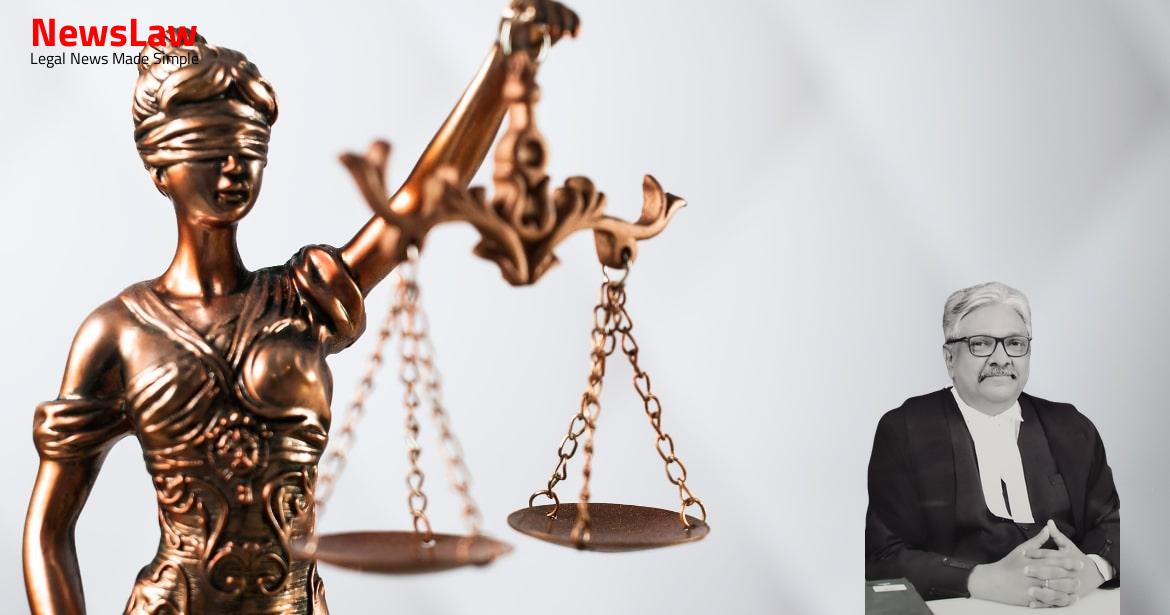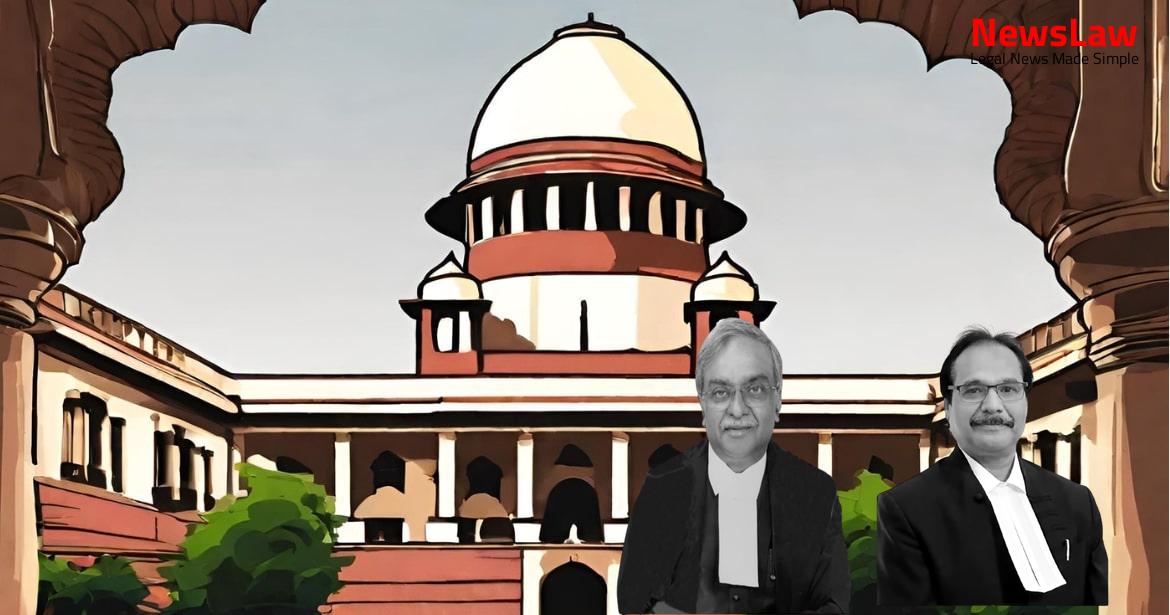In the case of State of Himachal Pradesh vs. Accused Vijay, a landmark judgment was delivered by the High Court of Himachal Pradesh. The case involved a complex legal battle between the State of Himachal Pradesh as the respondent and Accused Vijay as the petitioner. The court’s decision not only sheds light on the intricacies of the legal system but also sets a significant precedent in the realm of legal justice.
Facts
- The High Court held that there were adequate and special reasons for imposing a sentence of imprisonment for a term of less than ten years.
- An order dated 28 March 2008 set aside the judgment of the Sessions Court and remanded the case for the offence of gang rape.
- The case was tried against five accused after one of the accused, Anil, passed away.
- The Trial Court acquitted the accused due to lack of corroborating evidence of struggle or injury, leaving the possibility of consent.
- The State of Himachal Pradesh appealed against the order of acquittal citing the provision of a minimum sentence of ten years under Section 376(2).
- The accused Vijay challenged his conviction through Criminal Appeal No.2568 of 2024.
- The accused were sentenced to three years of rigorous imprisonment and a fine of Rs.50,000/- each, with six months of additional imprisonment on default of fine payment.
- The High Court interfered in the appeal by the State using its power under the proviso to sub-section (2) of Section 376 of the IPC prior to its substitution by Act No.13 of 2013.
- The respondents in Criminal Appeal No.2567 of 2024 were convicted for the offence under Section 376(2)(g) by the High Court of Himachal Pradesh.
- The Sessions Court later reversed its acquittal and convicted the accused for the offence under Section 376(2)(g) of the IPC based on the evidence.
- The prosecution and accused adopted the recorded evidence even after remand for the trial.
- Six accused, namely Raghubir Singh, Vijay Kumar, Ravi Prakash, Anil Kumar alias Bittu, Hari Ram, and Sunil Kumar were tried before the Sessions Court for the alleged incident of 8 July 1989.
- Initially, the accused were prosecuted for the offences punishable under Section 376, read with Section 34 of the IPC.
- The fine amount, if deposited, was ordered to be paid to the prosecutrix who is PW-5 in the case.
Also Read: Supreme Court Judgement: State vs. [Appellant’s Name] in the Case of Lady Police Constable Dhokne
Arguments
- The High Court’s finding was based on the fact that consensual sexual intercourse with a woman over sixteen years old was not an offence under Section 375 of the IPC at that time.
- The prosecutrix walked ahead of accused Vijay to a bridge according to her own account.
- Two previous judgments of acquittal in favor of accused Vijay were also highlighted by the defense counsel.
- The Sessions Court acquitted the accused twice after thorough examination of the evidence.
- The High Court’s interference in the case was questioned as there were differing interpretations of the evidence.
- The prosecutrix’s conduct on the date of the incident did not align with the theory of sexual intercourse without consent.
- The prosecutrix had multiple opportunities to raise an alarm but did not.
- The High Court acknowledged the prosecutrix’s acquaintance with accused Vijay and his interest in marrying her.
- Contradictions and improvements in the prosecutrix’s testimony were noted by the Sessions Court during the remand.
- Even in the appeal against the first acquittal, the High Court did not convert it to a conviction but ordered a remand.
- The prosecutrix’s credibility was questioned by the defense counsel citing her conduct.
- The High Court found that the prosecutrix willingly accompanied accused Vijay at the video parlour.
- The High Court determined that the prosecutrix was over sixteen years old at the time of the alleged offence.
- The approach of the Trial Court in dealing with the gang rape case was deemed inappropriate by the respondent.
- The respondent emphasized that the High Court should not have shown leniency towards the accused by giving a sentence less than the minimum prescribed term.
- It was asserted by the respondent that the testimony of the prosecutrix clearly indicated non-consensual sexual intercourse, making any notion of consent unreasonable.
- The counsel for the State argued that the judgment of the Sessions Court, post remand, was considered perverse by the respondent.
- The State’s counsel urged for the appeal to be allowed and for a sentence at least meeting the minimum prescribed term to be awarded.
Also Read: Karnataka Biotics vs. The Board for Industrial Finance and Reconstruction
Analysis
- The High Court found that the age of the prosecutrix was not less than sixteen years.
- The prosecutrix’s testimony of sexual intercourse with the accused remained unshaken.
- Accused statements under Section 313 of the Cr.PC can be used along with prosecution evidence.
- Absence of injuries on the prosecutrix does not imply consent.
- Accused Vijay’s claim of a consensual relationship contradicted by the circumstances.
- The High Court’s conclusion based on evidence was deemed the only possible one.
- Significant details of the incident were highlighted via the prosecutrix’s testimony.
- Relevance of age and family responsibilities of the accused considered by the High Court.
- Prosecutrix’s testimony relied upon for conviction unless proven untrustworthy.
- Minimum sentence under Section 376(2) of IPC is rigorous imprisonment for ten years.
- High Court’s sentencing factors included the date of the incident and past acquittal of accused.
- The court emphasized the importance of considering the testimony of a victim of sexual assault without insisting on corroboration in every case.
- It was highlighted that treating the victim’s evidence with suspicion is improper as she is a victim of another person’s lust, not an accomplice to the crime.
- The court stressed that seeking corroboration of the victim’s statement can add insult to injury and is unnecessary unless compelling reasons exist.
- The judgement referred to previous cases to underline that the victim’s testimony in cases of sexual assault should be given great weight and reliability.
- It was noted that the purpose of Section 313 of the Code is to enable the accused to explain circumstances, which should be considered in judging innocence or guilt.
- The accused’s statement under Section 313 can be used in trial to a limited extent, and must be considered in conjunction with the prosecution’s evidence.
- Conviction cannot solely rely on the accused’s statements under Section 313, especially when the accused does not have a burden to discharge.
- The court must objectively consider the accused’s statement in its entirety, as per the principles outlined in previous judgements.
- Accused Vijay cannot be shown further leniency due to the gravity of the offence.
- Others involved in the case must have undergone the sentence of three years, except for Vijay.
- Enhancement in sentence is not justified nearly 35 years after the incident.
- No merit in the State’s appeal or Vijay’s appeal.
- High Court found adequate reasons to exercise powers under the proviso.
Also Read: Judicial Insight: Examining the Ruling in Hanna vs. The State of Uttar Pradesh
Decision
- Accused Vijay was granted bail in his appeal dated 7 May 2018.
- He has not served the remaining sentence of three years.
- Both appeals have been dismissed.
- Accused Vijay is granted one month to surrender before the Trial Court to serve the remaining sentence as per the High Court’s judgment.
Case Title: THE STATE OF HIMACHAL PRADESH Vs. RAGHUBIR SINGH (2024 INSC 421)
Case Number: Crl.A. No.-002567-002567 – 2024



